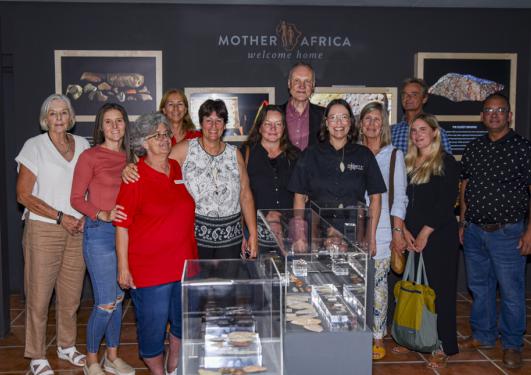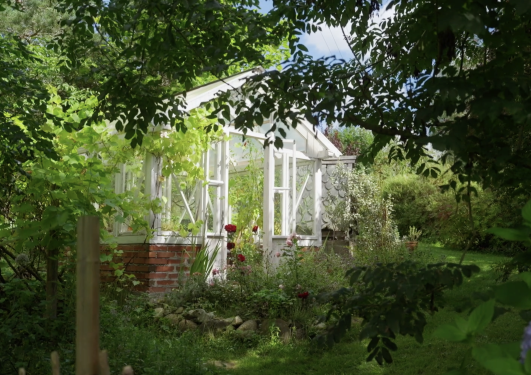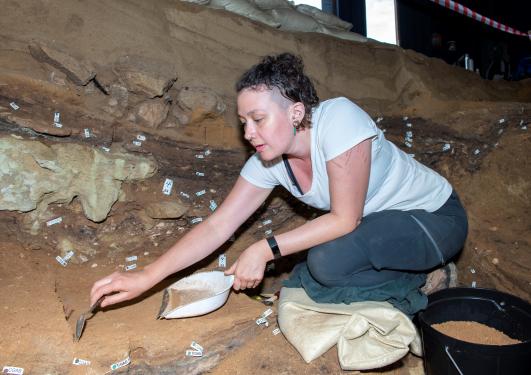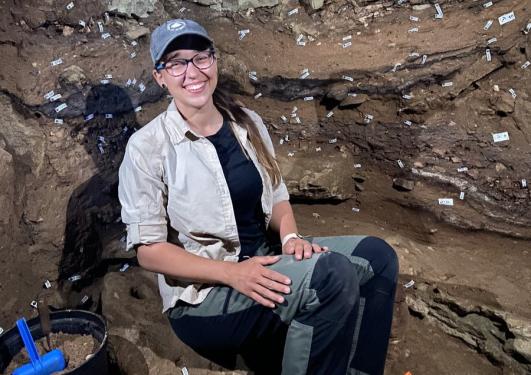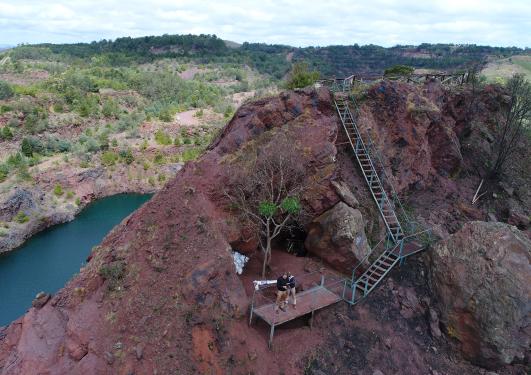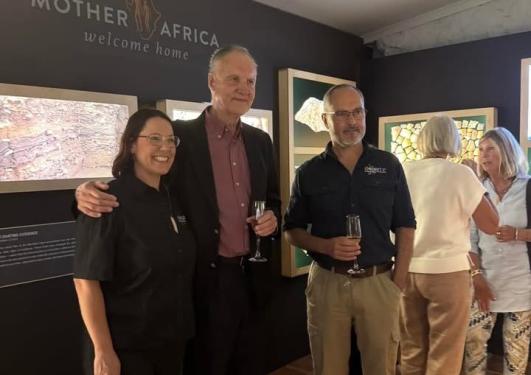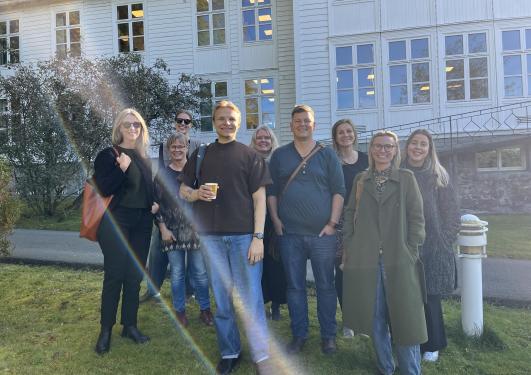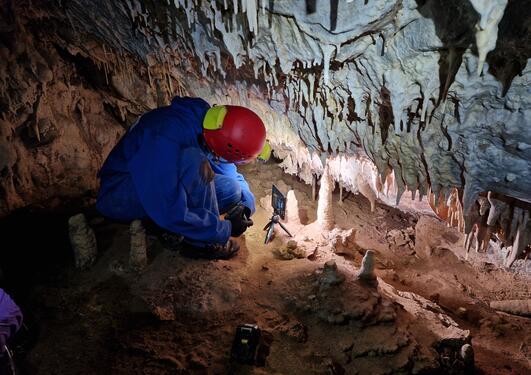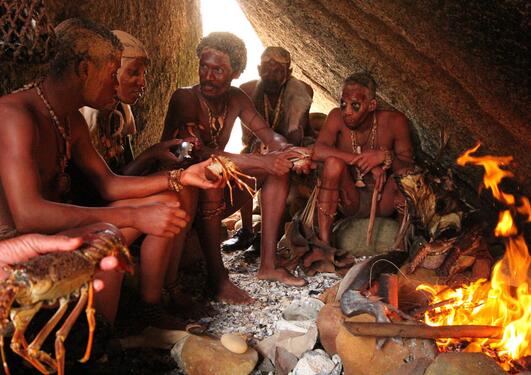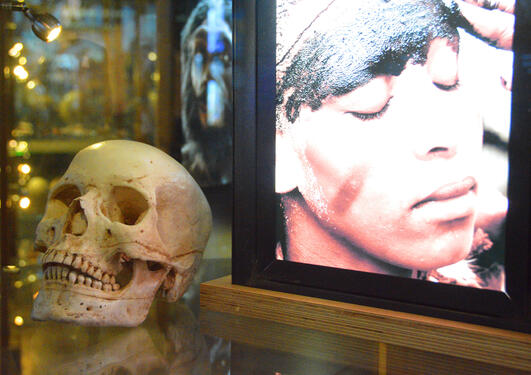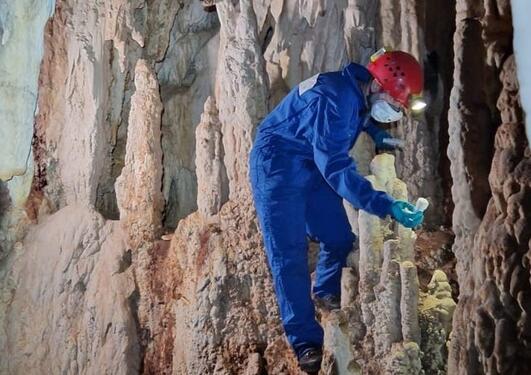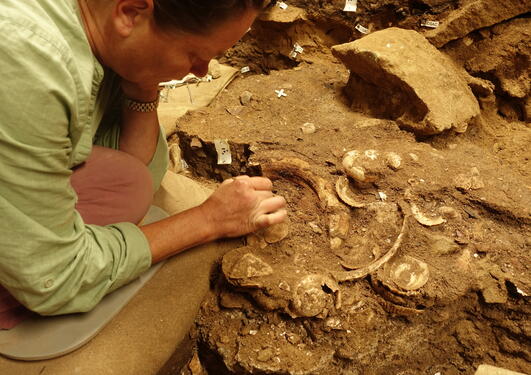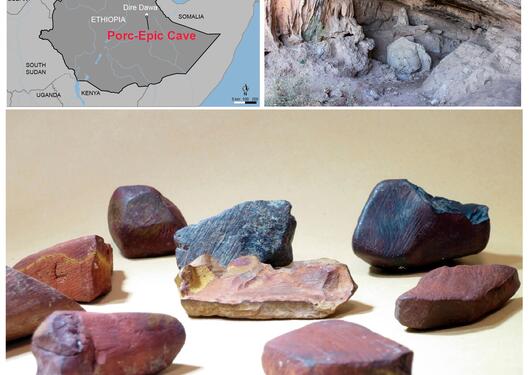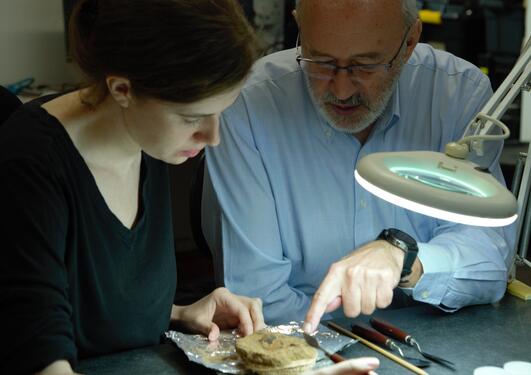News archive for Department of Archaeology, History, Cultural Studies and Religion
The Wits/SapienCE Blombos Museum of Archaeology in Still Bay, Southern Cape, has received the award for Best Innovative Project in the Field of Museums, Heritage, and Geographical Names from the Western Cape Department of Cultural Affairs and Sport.
Norwegian gardens have gone from being full of fruits and berries to becoming flat lawns with trampolines and gas grills. “We have gardens that demand more, but give less back to nature,” says Professor Kyrre Kverndokk.
A new study from SapienCE reveals that early modern humans at Blombos Cave in South Africa used ochre as a specialized tool for stone toolmaking during the Middle Stone Age, demonstrating advanced technical skills far earlier than previously believed.
How did our ancestors learn to craft tools, control fire, paint on cave walls, and sail across vast oceans — and how were these skills passed down through generations?
Her passion for archaeology was sparked the first time she witnessed an active archaeological dig. This spring, Asia Alsgaard supervised the SapienCE excavations at Klipdrift Cave during fieldwork in South Africa.
SapienCE scientist Elizabeth Velliky and her team have uncovered that the world's oldest ochre mine, Ngwenya in eSwatini, wasn't the only source of ochre pigment as we once thought. Instead, people used a variety of local ochres, showcasing unique cultural traditions and social interactions in Stone Age communities in Eswatini.
The Blombos Museum of Archaeology has launched the much-anticipated exhibition Origins of Early Southern Sapiens Behaviour marking a significant milestone in understanding early human prehistory.
Apply for admission to our new course Introduction to the Environmental Humanities! Through lectures, seminars, and fieldwork, the course explores cultural, historical, political, and creative engagements with the environment at local, national, and global scales.
Dr. Margit H. Simon is awarded a prestigious ERC Consolidator Grant of 2,17 million Euros to lead the PIONEER project which will transform our understanding of how environmental factors shaped the evolution of behavioural complexity in early Homo sapiens.
This fall, the research group Research and Teaching on Controversial Issues is hosting a seminar for teachers to explore various approaches to teaching controversial issues in schools.
A new study published in Scientific Reports shows that hide glue made from calfskin was used as a binder in the paints used to produce Uvdal stave church’s decorations. Surprisingly, tests also uncovered traces of human saliva.
Download our latest annual report and delve deeper into our discoveries and advancements, including experiences from the field in South Africa.
A recent study at SapienCE calls for a more nuanced approach to understanding the evolution of human cognition, arguing that research on the mental abilities of humans – in the present and the past – needs to incorporate cultural and cognitive diversity more explicitly.
A new SapienCE exhibition has opened in South Africa. The 'Origins of Early Southern Sapiens Behaviour” showcases unique archaeological discoveries offering visitors a distinct cultural experience in the heart of the De Hoop Nature Reserve.
A recent study demonstrates how dripstones can be crucial for reconstructing past climates. The new approach can provide a detailed picture of the climate around early human occupations in South Africa.
Our early ancestors were collecting eye-catching shells that may have been used as personal ornaments 100 000 years ago. The discoveries possibly also show the creation of identity that gradually, but radically changed the way we look at ourselves and others.
SapienCE’s Francesco d’Errico and his international team have published their analysis of the largest known collection of Middle Stone Age ochre, which reveals how ochre use evolved over a period of 4500 years. The new study is essential to understand how complex cultures arose and diversified in human history.
SapienCE scientist Francesco d’Errico is ranked as number 1 in Social Sciences and Humanities in Norway by Research.com.
Pages
- October 2025 (1)
- July 2025 (1)
- June 2025 (2)
- May 2025 (1)
- January 2025 (1)
- December 2024 (3)
- October 2024 (1)
- September 2024 (1)
- May 2024 (1)
- February 2024 (1)
- January 2024 (1)
- October 2023 (1)
- September 2023 (2)
- August 2023 (1)
- June 2023 (2)
- May 2023 (1)
- March 2023 (1)
- November 2022 (1)
- October 2022 (1)
- August 2022 (1)
- May 2022 (1)
- February 2022 (1)
- September 2021 (1)
- August 2021 (1)
- July 2021 (1)
- June 2021 (1)
- May 2021 (1)
- April 2021 (1)
- March 2021 (2)
- February 2021 (1)
- December 2020 (1)
- September 2020 (2)
- August 2020 (1)
- April 2020 (3)
- March 2020 (1)
- February 2020 (1)
- January 2020 (1)
- December 2019 (1)
- November 2019 (1)
- October 2019 (2)
- May 2019 (1)
- February 2019 (1)
- December 2018 (1)
- November 2018 (2)
- September 2018 (1)
- April 2018 (1)
- March 2018 (1)
- February 2018 (1)
- October 2017 (1)
- September 2017 (2)
- June 2017 (1)
- December 2016 (1)
- October 2016 (2)
- February 2015 (1)
- August 2014 (1)
- November 2013 (1)
- October 2013 (1)
- March 2012 (1)
